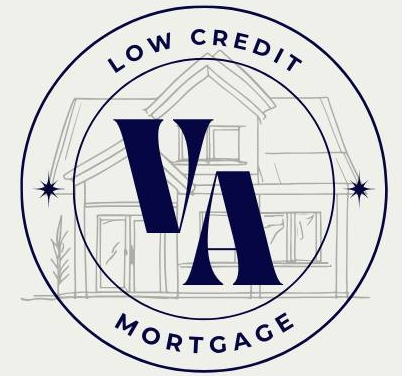How to Get a Mortgage Loan Using VA Disability with Low Credit in 2025: A Step-by-Step Guide
If you are a veteran receiving VA disability benefits, you’re already ahead of the game when it comes to securing a mortgage loan in 2025. However, if you have low credit and are concerned that it might hinder your ability to buy a home, don’t worry—there are options available to you. Thanks to VA loans, veterans with disability benefits and less-than-perfect credit can still achieve their homeownership goals.
In this article, we’ll walk you through how to qualify for a mortgage using VA disability income in 2025, even with low credit. We’ll discuss the various benefits of VA loans, eligibility criteria, and tips for improving your chances of approval. Plus, we’ll highlight how working with specialized lenders like Forever Home Financing, Low Credit VA Mortgage, and leveraging government resources like HUD.gov can help you navigate the process.
Understanding VA Disability Benefits and Mortgage Eligibility
VA disability benefits are paid to veterans who have sustained service-related injuries or illnesses. These benefits are tax-free and provide a stable, ongoing income source for recipients. When it comes to securing a mortgage, your VA disability benefits can be used to help meet income requirements, even if your credit is not perfect. The VA loan program, in particular, is one of the best mortgage options available for veterans, providing several benefits that make homeownership more accessible.
What Makes VA Loans Different?
A VA loan is a mortgage that is backed by the U.S. Department of Veterans Affairs. VA loans are designed specifically for veterans and active military service members, and they offer significant advantages over conventional loans:
•No down payment: Unlike most conventional mortgages, VA loans typically do not require a down payment, which is a significant advantage.
•No private mortgage insurance (PMI): VA loans do not require PMI, which can save you hundreds of dollars per month.
•Lower interest rates: Because they are government-backed, VA loans often come with lower interest rates than conventional loans, saving you money over the long term.
•Flexible credit requirements: While there is no official minimum credit score required for a VA loan, most lenders prefer a score of at least 620. However, even with lower credit scores, it is still possible to get approved for a VA loan.
Can VA Disability Income Be Used to Qualify for a Mortgage?
Yes, VA disability benefits can be used as income when applying for a VA loan. Since disability compensation is tax-free and often permanent, lenders view it as a reliable and stable income source. This means that even if your credit score is lower than ideal, your disability benefits can help you qualify for a mortgage by bolstering your debt-to-income ratio (DTI), a key factor in loan approval.
Your DTI ratio is the percentage of your monthly income that goes toward paying debts (including the mortgage). A lower DTI ratio increases your chances of loan approval. By including your VA disability income in your total monthly income, you may be able to lower your DTI ratio and increase your eligibility for a loan.
Why Low Credit Is Not a Dealbreaker
One of the key benefits of the VA loan program is that it offers flexibility with credit scores. While most conventional lenders require a credit score of 620 or higher, the VA loan program doesn’t have a strict minimum score. This makes it easier for veterans with low credit or limited credit history to qualify for a mortgage.
That said, while low credit may not automatically disqualify you from a VA loan, it could still affect the interest rate you receive. Lenders will evaluate your credit history to assess the risk associated with lending to you. However, if you are receiving VA disability income, that income can offset some of the risks associated with low credit.
Key Benefits of Using VA Disability Income for a Mortgage in 2025
•Stable, reliable income: Since VA disability benefits are typically permanent, they provide a steady and predictable income source that can be counted on by lenders.
•Non-taxable income: Your VA disability benefits are tax-free, which means you effectively have more income to qualify for a loan.
•Potentially lower DTI: Including VA disability benefits in your application can lower your DTI ratio, increasing your chances of approval.
•Flexible approval requirements: With VA loans, you may be able to qualify even with a credit score as low as 580, depending on other factors like income, assets, and the overall financial profile.
Step-by-Step Guide to Getting a Mortgage with VA Disability and Low Credit in 2025
Now that you understand the basics of how VA disability income can help you qualify for a mortgage, let’s break down the steps to securing a loan in 2025, even with low credit.
Step 1: Determine Your Eligibility for a VA Loan
To apply for a VA loan, you must first confirm your eligibility. The Certificate of Eligibility (COE) is the official document that proves you meet the service requirements. Here’s how to get it:
•Veterans: Typically, you must have served at least 90 days of active duty during wartime or 181 days of active duty during peacetime to qualify for a VA loan.
•Active-duty service members: You must have served 90 continuous days of active duty.
•Surviving spouses: If you are a surviving spouse of a veteran who died as a result of their service, you may be eligible for VA loan benefits.
You can apply for the COE online through the VA’s eBenefits portal or through a VA-approved lender. Once you have your COE, you can move forward with your mortgage application.
Step 2: Gather Your Documents
Before you can apply for a mortgage, you will need to gather several documents to verify your income, military service, and other personal details. These may include:
•Certificate of Eligibility (COE): This verifies your eligibility for a VA loan.
•VA disability award letter: If you are receiving VA disability benefits, this document will confirm your eligibility and the amount you receive monthly.
•Recent pay stubs: These will help verify your income, including your VA disability income.
•Bank statements: Lenders will typically ask for statements from the last two to three months to verify your savings and liquidity.
•Credit report: Your lender will pull your credit report to assess your credit history and score.
Step 3: Choose a VA-Approved Lender
It’s essential to work with a VA-approved lender when applying for a VA loan. These lenders are familiar with the specific requirements of VA loans and understand how to work with veterans who have low credit scores.
Forever Home Financing and Low Credit VA Mortgage are excellent resources for veterans with low credit. These lenders specialize in helping veterans secure home loans, even if their credit isn’t perfect. Working with these specialized lenders can increase your chances of getting approved and help you navigate the unique aspects of using VA disability income to qualify for a mortgage.
•Forever Home Financing offers personalized assistance to help veterans find the best mortgage options available.
•Low Credit VA Mortgage specializes in helping veterans with low credit scores access VA loans, providing tailored support for your specific financial situation.
Step 4: Understand the VA Funding Fee
While VA loans do not require a down payment, they do come with a VA funding fee. This fee helps cover the cost of the VA loan program and varies based on factors such as whether it’s your first time using a VA loan or whether you are making a down payment.
The funding fee can be rolled into the loan amount, so you don’t have to pay it upfront. However, if you are receiving VA disability compensation, you may be eligible for a funding fee exemption, which would eliminate this cost.
Step 5: Submit Your Application
Once you’ve gathered all the necessary documents and chosen a lender, it’s time to submit your loan application. Your lender will evaluate your financial situation, including your income (such as VA disability), your credit score, and your DTI ratio. If your credit score is low, your VA disability income will help demonstrate your ability to repay the loan, increasing your chances of approval.
Step 6: Closing the Loan
If your application is approved, you will move forward to the closing process, where you’ll sign the loan documents and take ownership of the property. While VA loans do not require a down payment, you will still need to cover any closing costs, which can include fees for the title search, appraisal, and other associated costs.
Step 7: Start Making Your Payments
After closing, you’ll begin making monthly mortgage payments. Since VA loans have competitive interest rates, your payments may be lower than those of a conventional loan. Additionally, your VA disability benefits may help reduce the financial strain of homeownership, as the income can be counted toward your mortgage application.
Additional Resources and Tips
•HUD.gov: The U.S. Department of Housing and Urban Development (HUD) provides helpful information about VA loans, disability benefits, and homebuyer assistance programs. Visit HUD.gov for more information on VA loan eligibility and resources.
•Forever Home Financing: For personalized mortgage guidance, visit Forever Home Financing, where experts can help veterans secure financing using VA benefits, including disability compensation.
•Low Credit VA Mortgage: If you have low credit and need assistance, visit Low Credit VA Mortgage for specialized help with getting approved for a VA loan.
Conclusion
Getting a mortgage using VA disability benefits in 2025, even with low credit, is entirely possible. With the right approach, the unique benefits of VA loans, and assistance from specialized lenders, you can navigate the process and achieve your goal of homeownership. By leveraging your VA disability income, working with experienced lenders like Forever Home Financing and Low Credit VA Mortgage, and utilizing resources from HUD.gov, you can confidently take the next steps toward purchasing your home.
Start today and explore your options with VA loans—homeownership may be closer than you think!

